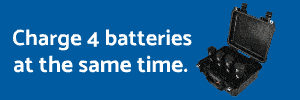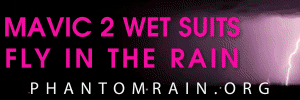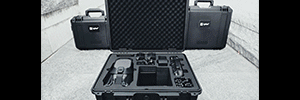Canada announced new restrictions and guidelines for all drone operators and their ‘crafts. I just went through the process, and it was much more difficult than I expected. Thought I would share, especially as DJI Pilots are effected in some unique ways.
The new restrictions and regulations are effective on June 1, 2019. Until then all the old guidelines apply.
On June 1 you cannot fly a (larger than micro) drone in Canada without a pilot certificate and your drone must be registered. The other key highlights for basic operation are: You must keep your drone in sight at all times (observable visual distance). Fly by camera is not acceptable. You cannot fly over people, and must fly a minimum of 30m from people. You can’t fly within 3miles (5km) of airports and 1 mile of heliports. You can fly at night, but only with lights for visual observation. You must yield to all other air traffic, and obey all laws and restrictions. You must be able to produce your certificate and your drone’s registration number must be marked on your drone.
There are 2 kinds of pilot operator certificate, Basic and Advanced. Achieving basic certification requires you to pass a 35 questions test in 90 minutes. You can attempt the exam multiple times, but the cost is $10 per attempt. An additional $5 is required to register each drone.
The advanced certificate is not relevant to DJI operators. DJI has not pursued the requirements for gaining product approval for advanced use in Canada. Only drone equipment approved to be on the advanced list can be operated under those guidelines. For example, Advanced Certified operators and equipment can apply for special operation permits to fly near or over crowds at an event or contact ATC for approval to operate in restricted airspace (like within 3 miles of an airport). Advanced certification requires passing a tougher 50 question exam and an in person flight review (you fly in front of an official who signs off on your ability and knowledge).
For me that made things simpler as I don’t actually have any options. I cant fly (after June 1) without certificate and registration. I only have one drone - a Mavic Pro which is obviously not on the Advanced equipment list (no DJI model is).
I logged into the new Canadian drone portal site, reviewed a bunch of material, paid my fees, passed the basic exam and registered my drone. I printed my drone operator pilot certificate and put it in my case because I’m now required to be able to produce it on demand by authorities if challenged during operation. My Mavic Pro now sports it’s new official registration number on it’s side (along with my name and phone number, which was required previously).
I was really surprised with the exam. The authorities really want everyone to attend a flight school certified to provide Drone Operator Instruction (and they provide a list on the Canadian Drone Portal site). Note, the site does not provide a study guide or any learning materials for the exam. It does state the topic areas you may be tested on... and that’s about it.
The exam has questions, VERY specific questions, on topics like restricted airspace, meteorology, chart symbols, flight theory and so on. I’ve been a general aviation buff for decades and even taken some basic licensed aircraft pilot instruction. I can bore the ears off 99.9% of the population with my general knowledge... and there is no way I pass this exam without preparation and access to the required materials. You cannot walk up and pass even the exam on general knowledge, period.
I passed with 82%. Only a minor number of the questions were related to actual Canadian drone restrictions.
I would say this exam and certification process is an excellent barrier for most recreational drone owner/operators. 99% wont pass without going to drone school (or cheating) - you are going to learn a lot even attempting the exam.
Overall, I’m pretty positive. My drone is a camera platform to be operated with great care. I fully expect it to fail at some point and fall out of the sky either because of circumstance, mechanical or pilot error. It drives me nuts to see someone just flying around the ‘hood like it’s just an R/C car or some other toy to operate without considering the consequences.
That said, I’m sure there will be times where I bend the rules... for example get a little out of observable sight, but I will take those risks knowingly and make sure my flight can’t harm others if it fails.
Hope this info helps!
The new restrictions and regulations are effective on June 1, 2019. Until then all the old guidelines apply.
On June 1 you cannot fly a (larger than micro) drone in Canada without a pilot certificate and your drone must be registered. The other key highlights for basic operation are: You must keep your drone in sight at all times (observable visual distance). Fly by camera is not acceptable. You cannot fly over people, and must fly a minimum of 30m from people. You can’t fly within 3miles (5km) of airports and 1 mile of heliports. You can fly at night, but only with lights for visual observation. You must yield to all other air traffic, and obey all laws and restrictions. You must be able to produce your certificate and your drone’s registration number must be marked on your drone.
There are 2 kinds of pilot operator certificate, Basic and Advanced. Achieving basic certification requires you to pass a 35 questions test in 90 minutes. You can attempt the exam multiple times, but the cost is $10 per attempt. An additional $5 is required to register each drone.
The advanced certificate is not relevant to DJI operators. DJI has not pursued the requirements for gaining product approval for advanced use in Canada. Only drone equipment approved to be on the advanced list can be operated under those guidelines. For example, Advanced Certified operators and equipment can apply for special operation permits to fly near or over crowds at an event or contact ATC for approval to operate in restricted airspace (like within 3 miles of an airport). Advanced certification requires passing a tougher 50 question exam and an in person flight review (you fly in front of an official who signs off on your ability and knowledge).
For me that made things simpler as I don’t actually have any options. I cant fly (after June 1) without certificate and registration. I only have one drone - a Mavic Pro which is obviously not on the Advanced equipment list (no DJI model is).
I logged into the new Canadian drone portal site, reviewed a bunch of material, paid my fees, passed the basic exam and registered my drone. I printed my drone operator pilot certificate and put it in my case because I’m now required to be able to produce it on demand by authorities if challenged during operation. My Mavic Pro now sports it’s new official registration number on it’s side (along with my name and phone number, which was required previously).
I was really surprised with the exam. The authorities really want everyone to attend a flight school certified to provide Drone Operator Instruction (and they provide a list on the Canadian Drone Portal site). Note, the site does not provide a study guide or any learning materials for the exam. It does state the topic areas you may be tested on... and that’s about it.
The exam has questions, VERY specific questions, on topics like restricted airspace, meteorology, chart symbols, flight theory and so on. I’ve been a general aviation buff for decades and even taken some basic licensed aircraft pilot instruction. I can bore the ears off 99.9% of the population with my general knowledge... and there is no way I pass this exam without preparation and access to the required materials. You cannot walk up and pass even the exam on general knowledge, period.
I passed with 82%. Only a minor number of the questions were related to actual Canadian drone restrictions.
I would say this exam and certification process is an excellent barrier for most recreational drone owner/operators. 99% wont pass without going to drone school (or cheating) - you are going to learn a lot even attempting the exam.
Overall, I’m pretty positive. My drone is a camera platform to be operated with great care. I fully expect it to fail at some point and fall out of the sky either because of circumstance, mechanical or pilot error. It drives me nuts to see someone just flying around the ‘hood like it’s just an R/C car or some other toy to operate without considering the consequences.
That said, I’m sure there will be times where I bend the rules... for example get a little out of observable sight, but I will take those risks knowingly and make sure my flight can’t harm others if it fails.
Hope this info helps!











